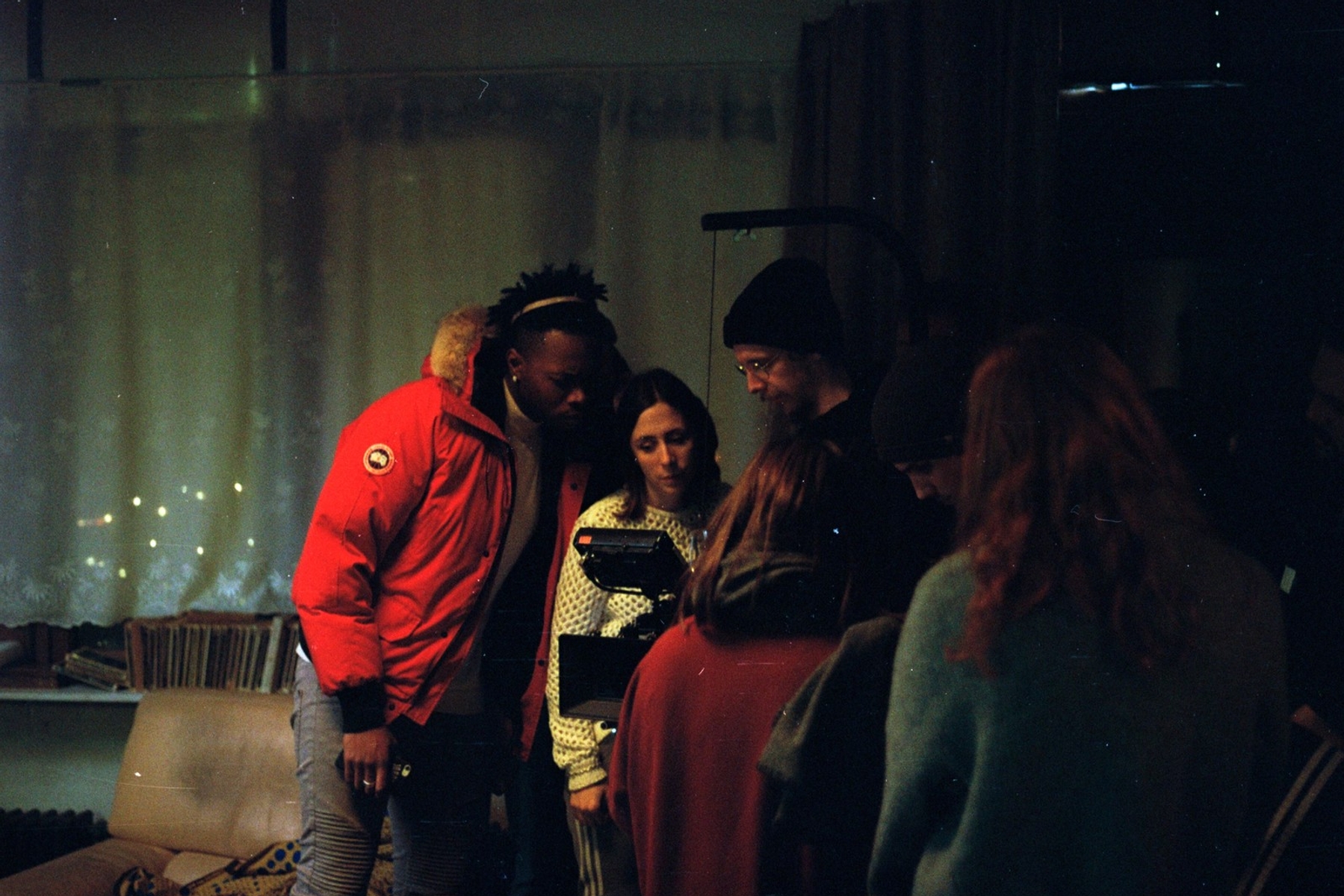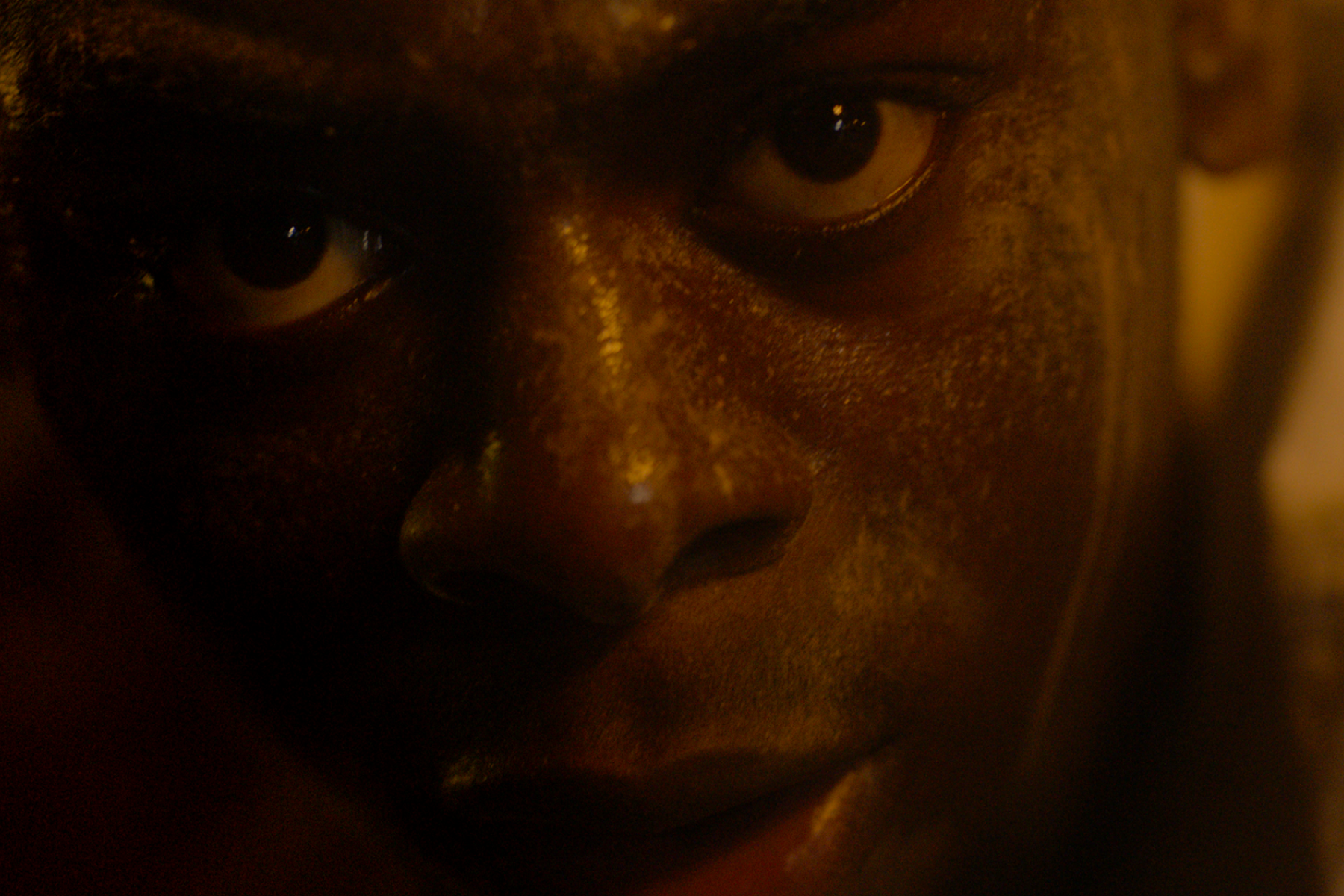I was still there when you left me: Meet Filmmaker Marie McCourt
The Franco-Danish director on her film, "I was still there when you left me," starring first-time actors.
DIRECTOR Marie McCourt
SCREENPLAY Marie McCourt & Abdoukarim Hamadi
CASTING Maja Ajmia Yde Zellama
CAMERA Oscar Haezenberghe
SCORE Rowan Van Hoef
Marie McCourt is a Franco-Danish filmmaker, who graduated from her master’s degree in Belgium, and lives and works between Paris and Brussels. Her graduation film, I was still there when you left me (2019), derives inspiration from the non-professional actors she cast and draws on the rapid fires that spread in buildings across Europe. I was still there when you left me, which received a Student Academy Award, is a story about a seven-year-old-girl who's consumed by guilt, thinking she had caused the fire that broke out on her block. We spoke with Marie about inspirational writers like Toni Morrison, using non-professional actors, and being unapologetic.

In 2019, you graduated from a master’s program at the Institut des Arts Diffusion in Belgium. That same year, you were street casting and highlighting the work of amateur and first-time actors. Explain the jump from directing to casting? And why non-professional actors? It sounds like a really organic process.
Casting has always been a part of my creative process; I can't separate it from the rest because I get a lot of inspiration from the people I cast. Sometimes I even start looking for actors before the script is done, or I will change it for them.
For example, the opening scene of my short film was inspired by Anae Romyns, who plays the main character, because she's a dancer. In the script, or on set, I like to give the actors something they're familiar with so that they can rely on it when they play. It could be an object, something they're good at, an environment, etc.
It doesn't change the story, but it gives backstory and more depth to the characters. I'm very intuitive with my writing, and most of the time, what inspires me is a feeling. It's all interrelated because if I cast non-professionals, it's about spontaneity and incorporating details of reality in my work.
Another reason why I choose to work with first-time actors is that I want to contribute to distilling the homogeneity of casting agencies in Belgium. I'm convinced that films can have an impact on society, and that the casting can be used as a tool to inspire while deconstructing stereotypes.


How long were you working on the project before it was fully realized? How did it feel to complete it?
I was on different projects at the same time, but I’d say it took us about one year to write, two months of preparation, and four months of post-production. It was a big baby to deliver!
As it was a student film, we were all still in a learning process. We made mistakes, but it forced us to be creative during the editing: we found new ways to tell the story, and I think it made the movie much more interesting than its original script. Because we used close-ups to create an immersive and tensed atmosphere, it allowed us to re-record some dialogues off-screen. Now, more than a year later, the film received a Student Academy Award. I couldn’t have dreamt of better encouragement while editing a documentary. I also started writing my first feature.
In I was still there when you left me, Karim (Joë Bunganga) asks, “where were you when the fire started?” It calls on the Grenfell Tower fires in 2017 you were referencing—both visually and historically—while pulling the viewer out of the film and allowing them to reflect. What stood out to you about the Grenfell Tower fires?
I came from a middle-class family and grew up in a gentrifying district, so I was confronted with social inequalities early on. A few months after I started writing, and an unsafe building collapsed in Marseille, killing eight people. It reminded me of the Grenfell Tower fires in 2017 in London: one year before, the building managers and builders added a new outer shell, responsible for the fire’s rapid spread. Instead of taking care of the people living there, they chose to make the building look prettier for the people outside.
With this film, I wanted to initiate discussions about what these events tell us about our society: the Grenfell Tower fires is a shameful symbol of a system that ignores a part of the population who lives in precarious and dangerous conditions.
As the system is difficult to materialize as a character, I wrote a story in which a little girl sets fire to her building, so that we could evacuate the question of her responsibility and ask the real questions. Who’s the real culprit? The absent parents, the people in charge of the safety conditions, the people who built the tower...? The state, who let them build that tower?
With your film, I was still there when you left me (2019), you mentioned that you took inspiration from Lynne Ramsey and Toni Morrison. What kind of stories and systems did you want to represent and navigate in the film? In light of the Black Lives Matter movement and the call to eradicate violent systems, has that messaged changed?
There’s a passage in The Bluest Eye, Toni Morison’s first book: « This soil is bad for certain kinds of flowers. Certain seeds it will not nurture, certain fruit it will not bear, and when the land kills of its own volition, we acquiesce and say the victim had no right to live.» I couldn’t have said it better. This is the discussion I wanted to initiate with the film: some types of violence are rarely questioned while, at the same time, it threatens the lives of people in particular material and structural circumstances. We blame them—when in fact they are the victims. The more we talk about violence, the more chances we are given to recognize it; to question it and to fight it so that we can heal ourselves.
I used an immersive point of view because I intended to create empathy. By leaving pieces of information offscreen, I wanted to invite the spectators to invest themselves a little more in the story. Lynne Ramsay’s last feature « You Were Never Really Here » inspired me a lot in how she balances the subject of her film, linked to trauma and violence, with sensitive and poetic images.
My message hasn’t changed. The difference is that the COVID-19 pandemic has revealed and reinforced some of the inequalities and absurdities of the world we live in. There’s still a lot to call out. I want to continue using cinema as a tool to break the silent agreement for violence and change the narrative.
Any advice for other young filmmakers?
Be unapologetic; trust your gut feeling! Explore and experiment; nothing's common if you give your look to it.


